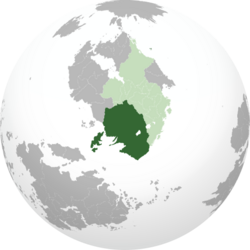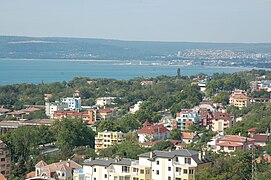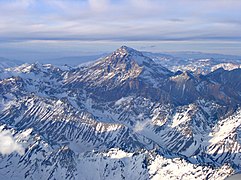Nunsiak
This article is a work-in-progress because it is incomplete and pending further input from an author. Note: The contents of this article are not considered canonical and may be inaccurate. Please comment on this article's talk page to share your input, comments and questions. |
The Royal Republic of Nünsiak An Thüzass Ida Nünsiake | |
|---|---|
Motto: ("By peace or by sword") ("Your motto in English") | |
Anthem: God bless you, Nunsiak Royal anthem: Chosen by God | |
 Location of Nunsiak (dark green) In Levantia (gray) | |
| Capital | Your city |
| Largest city | Your largest city (type "capital" for it to say "Capital and largest city") |
| Official languages | Your language Your language |
| Religion | Your religion |
| Demonym(s) | Nunsian (noun) Nunsi (adjective) |
| Government | Unitary constitutional monarchy |
• King | Joe Blow |
• Prime Minister | Jane Blow |
• A legislative leader of a different house, if applicable | Jeorgu Blov |
| Your upper house | |
| Your lower house | |
| Establishment | |
• An event | A date |
| Population | |
• Estimate | 64,390,000 |
| GDP (nominal) | estimate |
• Total | Your GDP = GDPPC x Population (This is calculated for you after first entry) |
• Per capita | 41,596 |
| Gini | 41 medium |
| Currency | Your Currency |
| Driving side | right |
Nunsiak, officially the Royal Republic of Nünsiak (Nünsi: An Tüzass Ida Nünsiake /ɑ̃ tʰyðas ita nynsʲakʰɛ/), is a unitary constitutional monarchy in western Levantia. It lies between the southern shore of the Vandarch and the highest range of the Gebir mountains. It borders Hendalarsk to the north, Asiland and Sylvala to the south, and Yonderre to the east.
Nunsiak is a member of the League of Nations.
Etymology
Why is your country called what it is? What is the source of that word or phrase?
History
What is a general overview of your country's path through history?
First era
Archaeological evidence points to very early Nunsi settlement, followed by the ancestors of the Celts and Goths.
Second era
Early Gothic trading/raiding state, think of the Nunsi in a Kievan Rus/Slav situation. They kick the Goths out eventually, probably with help from the southern Levantines and Catholics, resulting in their peaceful mass conversion, and setting a precedent for cooperation with the south.
Third era
Miaphysite Christology and a few other disagreements cause a schism with the Catholic church, souring relations with the south. This period of increased isolationism and external hostility contributes to the country's unique cultural identity and martial tradition.
Fourth era
The Protestant reformation largely has the opposite effect in Nunsiak, leading to the Nunsi Church's reconciliation with the mainstream Catholic Church, save for a select few sects who reject the compromises made (which could also serve as guidelines for the later Eight Points Agreement). By strengthening ties with the HLE sphere and importing new ideas and technologies, Nunsiak enters its Golden Age, marked by cultural enlightenment and an explosion of artists, philosophers and composers.
Fifth era
The Golden Age decays into decadence, and what starts as civil unrest escalates into full revolt. The revolutionaries reach an uneasy standstill, founding an unstable and divided republic. Pressured by allies of the King in exile and the Loyalists within the country, a new constitution is drafted, wherein a republican form of government is adopted, and a great many of the King's power revoked, rendering him little more than a figurehead.
The two Great Wars cause the government to grow increasingly autocratic and militant, much to the dismay of the near-powerless royal family and their supporters.
Sixth era
Nunsiak continues to enjoy its status as a hub of culture, tourism and industry, but with tensions— both internal, at the ineffective authoritarian regime's inability to represent the people, the growing socioeconomic divide, and external tensions with prospective LU membership/international cooperation vs conservative isolationist policies, and probably beef with Sylvala or another neighbor. The government's hostility towards the royal family
Geography
-
St. Sgaiska monastery juts out of the steep Kühervek range.
-
The city of Mielpa beside its eponymous lake.
-
Much of the nation's littoral is being rapidly urbanized, the city of Danlu being a particular instance.
-
The capital Messiavaur lies atop a great plateau in the heart of the country.
-
Mount Rütbesk is the highest in Levantia and one of the highest in the world.
-
The littoral is characterized by rocky coastlines. Pictured here as well are autumn peonies, a national symbol.
Nunsiak sits between the Vandarch and the Gebir mountains, affording it a highly varied topography. Much of the country is occupied by high mountains and plateaus, along with deep, narrow lakes. Exceptions are the lush, fertile plains along the littoral and eastern regions.
Climate and environment
The Nunsi enjoy a dry, subtropical climate in the south, with increased humidity in the north and west, and cooler temperatures along the littoral. Much of the country's montane territory has a rather unusual continental dry-summer (Köppen type Dsa) climate. Summers are generally hot and dry, with wetter winters ranging from cool to frigid in the peaks.
Government and Politics
How is your country ruled or governed?
Executive
Who is responsible for making high level choices in your country? Does it have a President or King?
Legislative
Who decides the laws for your country? Is there political parties and a legislature?
Federal subdivisions
How is your country divided? Are there states or provinces, or is the country directly governed from the capital as a unitary state?
Politics
What political factions exist? Who has ruled predominantly?
Law
What kind of laws and legal system does your country employ?
Demographics
What kind of people live in your country?
Ethnicity
What ethnic groups make up your country?
Language
What language or languages do your country's people use? Are there any previously used languages no longer common? Are these languages native to your country or shared with another?
Religion
Religious affiliations in the Kingdom of Nunsiak (2030)
What do your country's people believe in religiously, if anything? How many groups are there?
Education
How many people in your country are educated?
Culture and Society
What do your people do, and what are they like?
Education
What is your country's education system like? How do the schools work? What do people think about education?
Attitudes and worldview
How do your country's people view life?
Kinship and family
How are families or kinship groups structured in your country?
Cuisine
What do your people eat?
Religion
What do your people believe? Rather than demographics, as above, think about how important religion is to your people and their view about their own and other religions. What is the relationship between the prevailing view and minority religious groups? Is it an official religion, and do any laws exist about free worship?
Arts and Literature
Nunsiak has a long tradition of arts, particularly in music. Several of the greatest composers of Levantine art music have been Nunsi in origin.
Sports
Does your country have any major sports leagues? What types of sports are played, both professionally and for fun by your country's people?"
Symbols
Are there any prominent symbols which are well known to represent your country?
Economy and Infrastructure
How does your country's economy work?
Industries and Sectors
Nunsiak's economy is primarily industry-based, but is growing to depend upon tourism as a major source of income.
Currency
What exchange systems are used within your country's economy?
Healthcare
How do people in your country procure medical care? How is it paid for?
Labor
How is labor organized within your country? Are there any social institutions or unions which deal with labor concerns?
Transportation
How do people in your country get around? Is there a major highway system as well as sea- and airports?
Energy
What type of energy keeps your nation going? Are you renewable or use fossil fuels, and if you are renewable, how recently did your country transition?
Technology
How advanced is your country? Is it an innovator, or does it largely import new developments?
Military
How large is your country's military? Is it large but poorly equipped or small and elite? Does your country have a martial tradition? Martial tradition, nearly all young men enlist but only serve nominally







